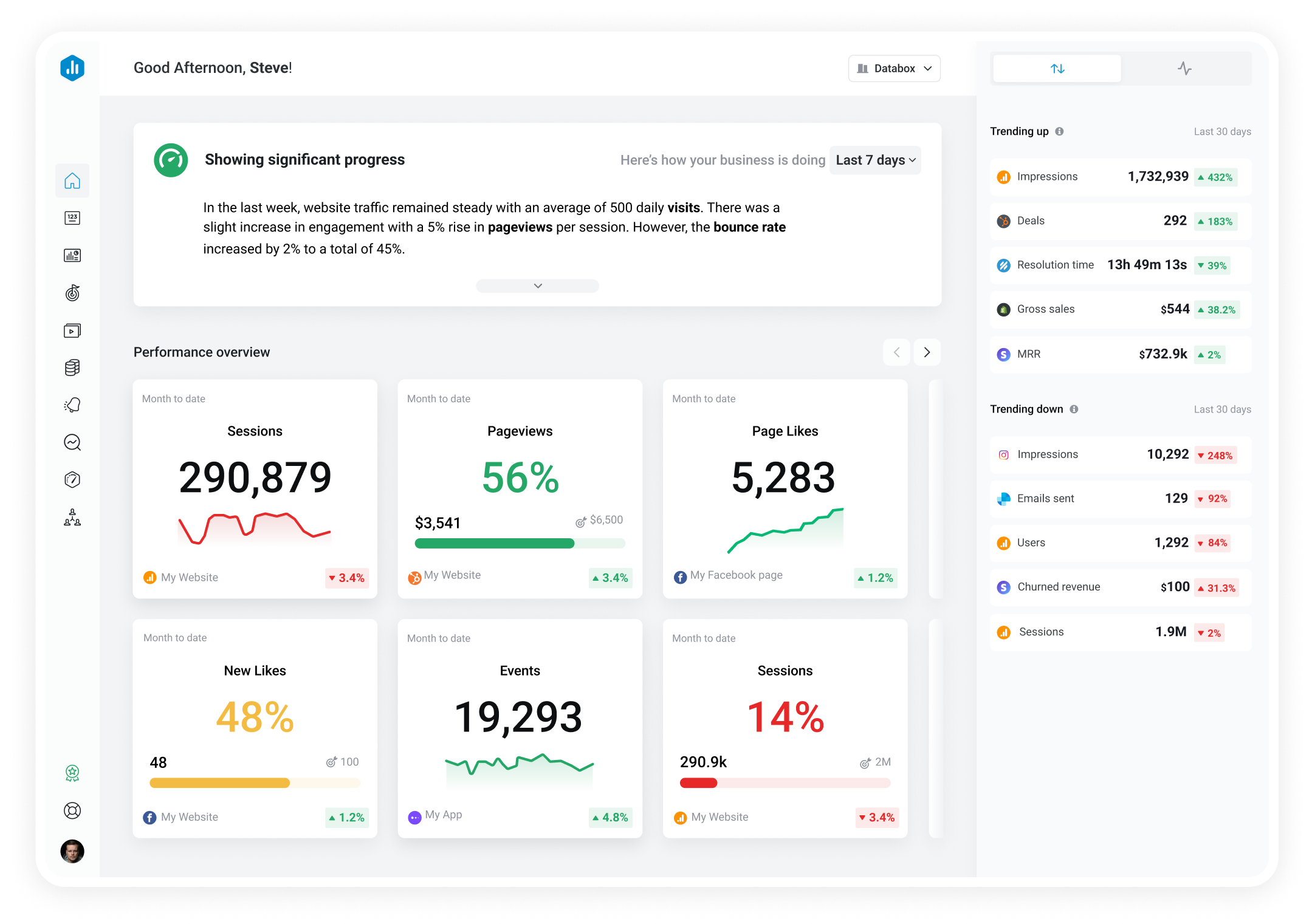Track all of your key business metrics from one screen
GET STARTED
 QuickBooks
Paid Invoices Amount by Customer
QuickBooks
Paid Invoices Amount by Customer The Paid Invoices Amount by Customer metric shows the total amount paid by each customer for the selected time period in QuickBooks. It helps track customer payments, inform future invoicing, and enables business owners to judge customer value.
With Databox you can track all your metrics from various data sources in one place.

Used to show comparisons between values.
Databox is a business analytics software that allows you to track and visualize your most important metrics from any data source in one centralized platform.
To track Paid Invoices Amount by Customer using Databox, follow these steps:
 Goals
Goals Scorecards
Scorecards Metric Digest
Metric Digest Metric Builder
Metric Builder Data Calculations
Data Calculations Performance Screen
Performance Screen